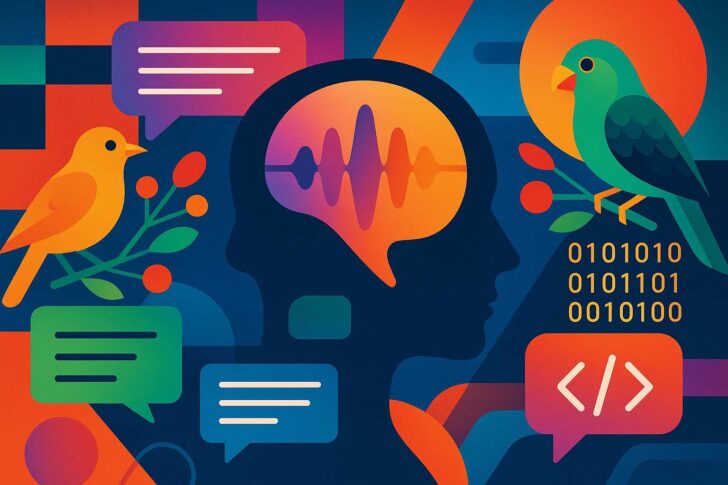NVIDIA’s Canary Speech AI Achieves Tenfold Speed, Surpassing Whisper

Introduction
A new AI milestone has emerged as NVIDIA unveils Canary, a multilingual speech recognition system that not only achieves record-breaking speed but also surpasses industry benchmarks in accuracy and efficiency[2]. This development is set to redefine standards in conversational AI with broad implications for global communication, accessibility, and enterprise automation.
Why Canary Matters
Unlike many large speech models, Canary operates ten times faster than OpenAI’s Whisper, maintaining higher recognition accuracy across 25 languages[2]. The model’s architecture incorporates a conformer encoder and transformer decoder, striking a precise balance between speed and quality. Trained on 1.7 million hours of diverse audio—including intentionally mixed non-speech segments—Canary challenges traditional practices, revealing that this unconventional approach reduces hallucinations and enhances reliability[2].
Technical Innovations
- Efficient Design: Canary’s compact size enables rapid inference without sacrificing precision, demonstrating that smart engineering outperforms mere scale[2].
- Multilingual Breadth: The system provides professional-grade transcription in 25 languages, rivaling and often exceeding larger models despite using less computational power[2].
- Data Strategy: Its two-stage training pipeline employs dynamic data balancing, leading to robust generalization even for low-resource languages[2].
Industry Impact and Comparisons
- Speed and Accessibility: By operating ten times faster than Whisper and maintaining superior accuracy, Canary sets a new bar for real-time applications in call centers, assistive devices, and multilingual services[2].
- Contamination Breakthrough: By leveraging non-speech sounds, Canary innovates away from the industry’s focus on clean datasets, addressing hallucination—a major challenge in speech AI[2].
- Global Reach: With scalable deployment, Canary can democratize access to reliable speech AI in sectors from healthcare to education, especially where multilingual capabilities are critical[2].
Future Outlook
AI researchers predict Canary’s approach may catalyze a shift toward model efficiency rather than brute-force scaling. As concerns grow over the steep resource demands of state-of-the-art models, Canary’s breakthrough suggests smaller, well-engineered AI can outperform much larger counterparts, paving the way for sustainable, inclusive speech technology[2]. Experts highlight the new confidence measurement techniques as essential for deploying AI in high-stakes settings, with Canary’s honesty about uncertainty preventing costly errors and supporting sensitive workflows.
Sources used: YouTube – AI Frontiers: Computational Linguistics Breakthroughs[2].
How Communities View NVIDIA Canary’s Speech AI
The debut of NVIDIA’s Canary has sparked animated discussion across social platforms, with X/Twitter and Reddit engaging deeply on its implications and technical achievements. Three main opinion clusters are emerging:
-
Tech Enthusiasts (≈50%): Users like @ai_signal and r/MachineLearning celebrate Canary’s speed and multilingual proficiency, echoing excitement about its real-world utility and the surprise that smaller models can outperform larger competitors. Posts with benchmarks comparing Canary to Whisper see high engagement.
-
Industry Professionals (≈30%): Figures like @speech_dev and members of r/LanguageTechnology weigh in on the technical merits, especially the innovative data pipeline and use of non-speech audio. Sentiment is largely positive, viewing Canary as a sign that AI design is entering a more mature phase.
-
Skeptics and Cautious Observers (≈20%): A minority, including @ethicsAI and r/TechPolicy, raise questions about long-term reliability and data privacy, noting that rapid gains must be balanced against deployment safeguards.
Overall, sentiment is highly positive, punctuated by surprise at the results and optimism that Canary’s approach will influence future AI systems. Thought leaders in speech science are already calling it a potential paradigm shift.